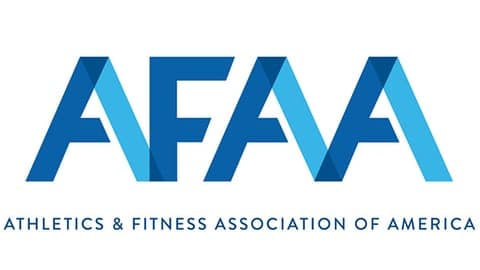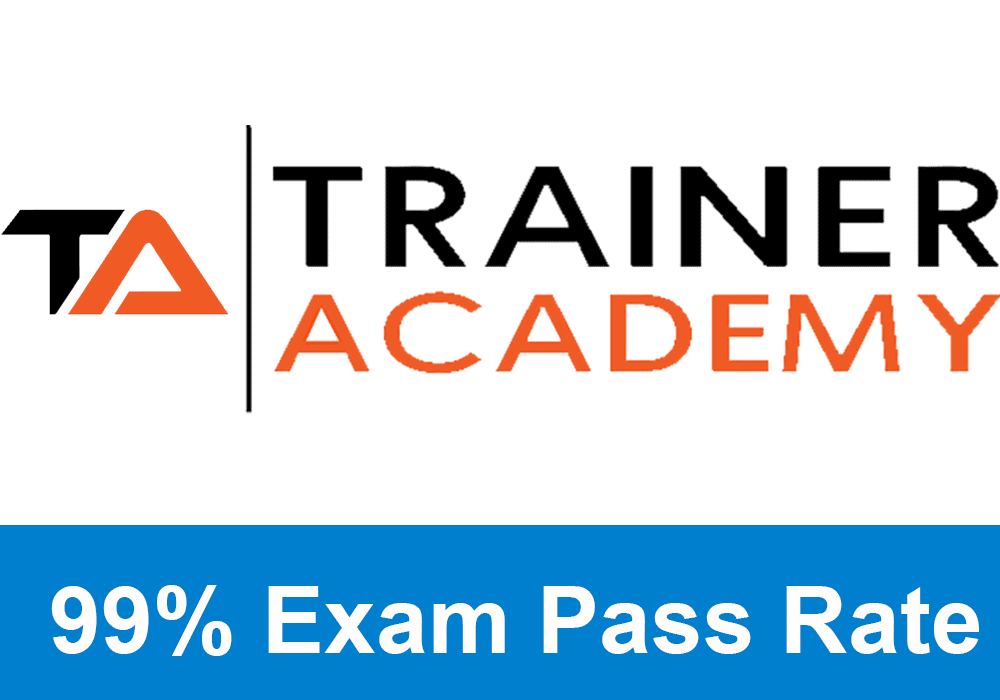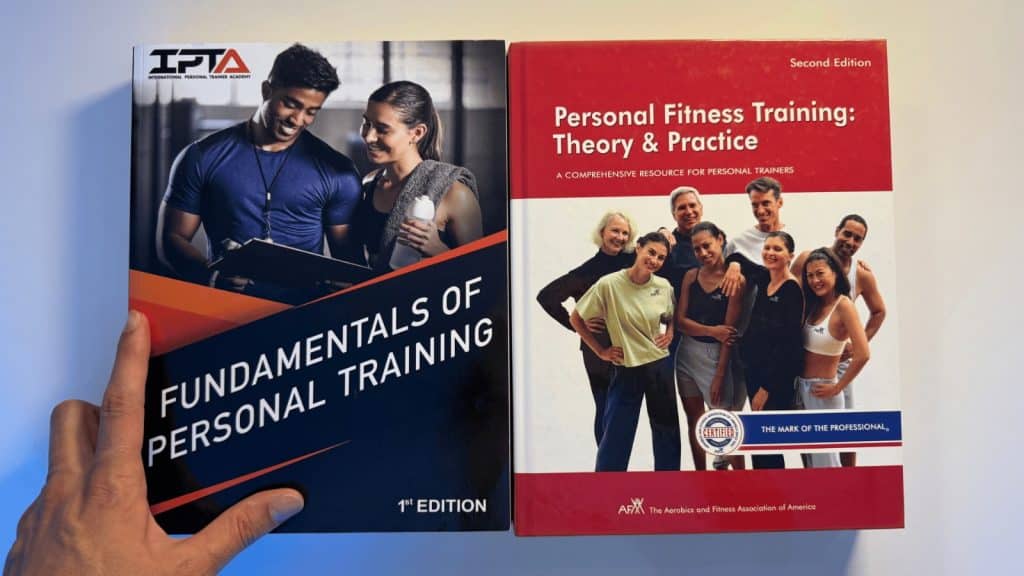
After looking through both the IPTA CPT and AFAA CPT certifications, IPTA CPT comes out on top. Although both programs offer NCCA-accreditation and are fairly priced, IPTA wins out in every other category. Make sure to read the full review below for a comparison between these two CPT certifications.
IPTA and AFAA Quick Comparison
| CPT | Features | Price |
|---|---|---|
|
|
|
View on IPTA Website |

|
|
View on AFAA Website |
If you’re deciding between the IPTA Certified Personal Trainer (CPT) and the AFAA Certified Personal Trainer (CPT), this breakdown will help you see where IPTA shines, where AFAA still has strengths, and which might suit your goals best.
Use the code PTPFEBRUARY to receive between 35% and 50% (depending on the program) off the Trainer Academy MVP Study System. Get the trial for any of their study systems here and look at my review for Trainer Academy here.
For more tips on which CPT is best for you, please take the quiz to determine which PT certification is the right fit.
What is the IPTA CPT Certification?
The IPTA CPT is a more recent certification built with modern trainers in mind. Unlike many traditional certs, IPTA was developed using advanced study-systems, aiming to streamline the path to certification.
Exclusive PTP CPT Offers |
||
|---|---|---|
Best Overall Cert | Best Online Cert | Best Study Materials |
Gold Standard Cert | A Good Option | Best CPT for you?  |
Key features:
- NCCA-accredited, meaning it meets national standards for recognition and credibility.
- Study resources include modern tools (adaptive flashcards, performance dashboards, weak-point tracking) designed to support efficient learning.
- Pricing and packaging aimed at value: lower base cost, built-in support, often promotional offers.
- Ideal for new trainers who want to enter the field quickly, with fewer obstacles and less cost.
That said, because the brand is newer, there may be less long-term dataset on outcomes (e.g., employment placements, alumni network size) compared to more established certs.
The IPTA periodically runs a buy one get one free (BOGO) promotion, where enrolling in the IPTA CPT also gives you the Nutrition Academy CNS program for free.
If that deal is available, I highly recommend you use it, because being able to help clients with nutrition in addition to training gives you more career options. Plus, with a higher-level skillset, you can raise prices and coach more clients. Even if you don’t use this offer, look at the IPTA free trial, where you can test out the program risk-free.
What is the AFAA CPT Certification?
The AFAA CPT is a well-established personal training certification from the Athletics & Fitness Association of America. It teaches the skills needed to train individuals and help them reach fitness goals in a general-population setting.
Key points:
- Founded in the early 1980s, with decades of experience in fitness certification.
- NCCA-accredited, ensuring the credential meets rigorous industry standards.
- Curriculum is generalist in nature, covers the foundational domains of fitness training (anatomy, physiology, program design, special populations) but may be perceived as less modern or less specialized compared to some newer certs.
- One-package study offering: textbook + video lectures + study guide. Less tiered or flashy in terms of extras than some competitors.
- Good value for those looking for a solid certification at a lower cost, but if you’re seeking extensive specialization or very modern study tools you might need to supplement.
IPTA vs AFAA Prerequisites
Both IPTA and AFAA share similar baseline requirements typical of major personal trainer certifications:
- Candidates must be at least 18 years old.
- Candidates must hold a high school diploma or equivalent (GED).
- Current CPR/AED certification is required.
IPTA CPT vs AFAA CPT — Pros and Cons

Here’s how the two compare across key categories:
Cost and Value
IPTA is one of the most affordable NCCA-accredited options with a base price that includes strong resources. For $399 you get the textbook and study materials. IPTA also includes free recertification, free CPR/AED, free exam retakes, SurePass AI, and a job assurance program.
AFAA is very competitively priced, but it’s still more expensive than IPTA. The exam costs $499 and the textbook is $79. There are no study materials available. This represents a lower price than NASM or ISSA, but with few supporting resources to help you pass the exam or help you after you become certified.
Verdict: If cost is a major factor, both are good, but IPTA edges out AFAA.
Study Materials and Learning Experience
IPTA emphasizes modern, interactive learning (flashcards, weak-point tracking, AI tools). It’s designed to support efficient prep.
AFAA scores 0 in the study department as they have no study materials. The textbook is also full of black and white images and could use an update.
Verdict: If you prefer guided, modern study aids, IPTA wins again.
Exam, Accreditation, and Difficulty
IPTA is fully NCCA-accredited, meaning strong recognition; exam prep tools integrated; likely to require solid study to pass.
AFAA is also NCCA-accredited; the exam is substantial (e.g., AFAA uses 120 multiple-choice questions plus practical section).
Verdict: Both credentials have credible accreditation and legitimate exam rigor. IPTA has modern tools to assist, AFAA has legacy experience and a recognized path. The difficulty may be comparable, though different in format and support.
Career Support and Perks
IPTA offers built-in perks: a job guarantee in higher tiers, first recertification included, and business resources for new trainers.
AFAA has a reputation as it’s partnered with NASM, but it offer no perks and is overshadowed in many regards by NASM’s own CPT.
Verdict: If you value built-in career support and job placement assurances, IPTA has the edge.
Long-Term Career Growth
IPTA is a good entry point for entry but it offers fewer advanced specialization tracks compared to major legacy organizations (because it’s still growing).
Because of AFAA’s longer history and associations (e.g., linked with larger organizations), might offer more specialization opportunities or stronger alumni network.
Verdict: For someone planning a longer career with many specializations, AFAA (and the provider ecosystem around it) might be more advantageous. For someone wanting to get certified, begin training clients fast and affordably, IPTA may be more tactical.
Which Exam Is Harder: IPTA or AFAA?
Exam difficulty can depend on your preparation style and study resources. Based on available information:
- IPTA’s exam is NCCA-accredited and supported by modern study tools; the expectation is that you must prepare thoroughly to pass.
- AFAA’s exam is also credible: For example, its exam consists of 120 multiple choice questions (with some unscored for research) and includes practical components. It has a passing score around 70%.
- The presence of strong study tools for IPTA may make the process feel more manageable. AFAA’s more traditional study path may require more self-driven effort.
Verdict: They are roughly comparable in accreditation and expectation of competence. If you choose IPTA and leverage its support tools, you may find the preparation more guided and potentially less stressful. If you choose AFAA and rely on textbook self-study, you might find it more challenging to organise your prep, but not necessarily harder in terms of content complexity.
Bottom Line and Recommendation
In the end, both the IPTA CPT scores top marks while AFAA comes out in second place. IPTA offers better value, cost, study materials, and career support.
- Choose IPTA CPT if:
- You want a modern, affordable program with strong built-in support and study tools.
- You’re relatively new to the industry and want to get certified and working quickly with lower risk.
- You value job-support perks and a streamlined process.
- Choose AFAA CPT if:
- You want a well-recognized credential from a long-standing provider in the industry.
- You are comfortable with more traditional study methods (textbook + lecture) and self-driven preparation.
Final Verdict: Both certifications can get you where you want to go. For most new trainers whose priority is value, efficiency, and strong support, the IPTA CPT takes the lead.

 Have a question?
Have a question? 
Tyler Read
PTPioneer Editorial Integrity
All content published on PTPioneer is checked and reviewed extensively by our staff of experienced personal trainers, nutrition coaches, and other Fitness Experts. This is to make sure that the content you are reading is fact-checked for accuracy, contains up-to-date information, and is relevant. We only add trustworthy citations that you can find at the bottom of each article. You can read more about our editorial integrity here.